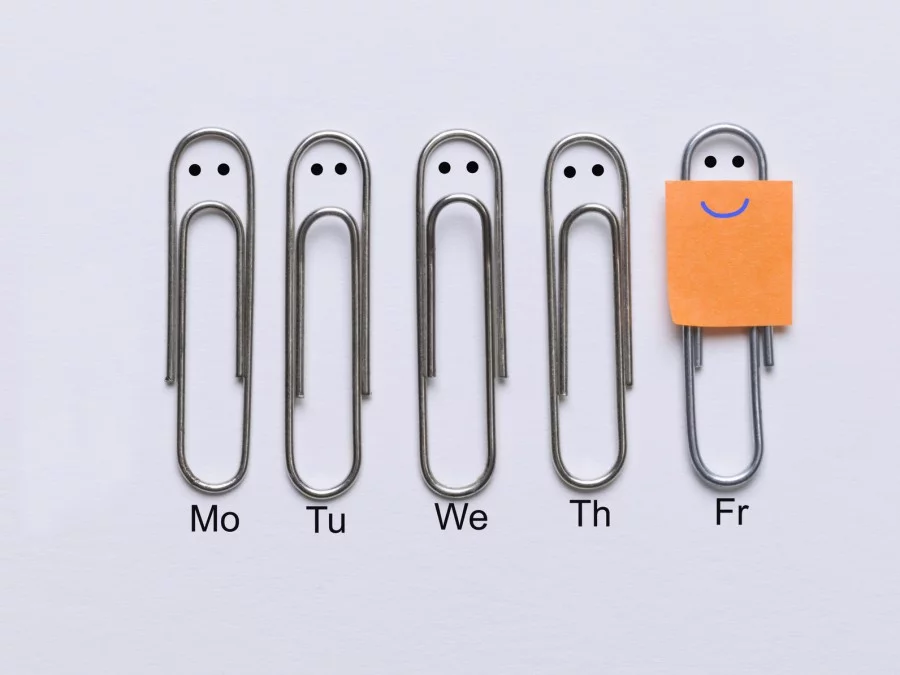
A Four-Day Workweek
This has been a LONG and stressful workweek – which affects everyone in the family. The only thing that has kept us going is the promise of a looming 3-day weekend! It’s so rewarding to think of an extra day off – how exciting! And wouldn’t it be nice to have a 3-day weekend EVERY week? It’s not really that outlandish of an idea. Research conducted over the past decade has raised an interesting prospect. Four days of work each week might allow us to get as much done as the traditional five-day work week. All the while offering financial and environmental benefits for businesses and increasing employee satisfaction with more personal or family time away from the stress of work.
How can working less lead to getting more done?
Increased Morale
High employee morale and energy is perhaps the biggest benefit of three-day weekends. Giving employees an extra day off gives them one more day to reset – to return to the office fresh and excited to get down to business. This enthusiasm translates into greater productivity, a greater sense of loyalty to the company, and a high-energy workplace.
Increased Urgency
TGIT means employees have to prioritize their weekly tasks to make sure they can meet goals. Employees come into the office on Monday morning ready to get down to business. This urgency of a four-day workweek forces personnel to be more efficient when working to ensure clients’ needs are still met at the end of the week.
Increased Time with Family
Everyone knows how hard it is to achieve work-life balance. A recent survey revealed that nearly two thirds of employees agreed that work-life balance is the most important factor in overall satisfaction. The four-day workweek makes it easier for parents to balance the demands of work and raising children.
Increased Retention
Employee turnover can be extremely difficult for businesses. Losing talented people, and then having to spend time and money identifying and training replacements, can be a major burden. For companies working on significant long-term projects, retaining key talent is absolutely vital. For companies with limited resources that can’t afford raises or other benefits, a four-day workweek can be a good way to make themselves more appealing than other employers. As noted, the productivity gains mean you’re not sacrificing much in the way of total work accomplished, so it’s a fairly low-cost perk.
Good for the environment
One day less at work means reduced electricity use and less time spent driving. Fewer commuters during the traditional rush hours makes travel quicker for everybody, which means less time spent idling in traffic and churning out less greenhouse gases and other pollutants. According to a report from the Centre for Economic and Policy Research, a global shift to shorter working hours could reduce carbon emissions enough to halve expected global warming between now and 2100.
Thanks to technology advancements, it’s not like work doesn’t follow us everywhere we go anyway. A four-day workweek will be one concept that is hard for rigid companies to embrace but I think it makes sense. And while many employers may not be ready to cut hours or shorten workweeks, many are steadily embracing a more flexible work environment. It’s the only way for businesses to stay competitive and offer their employees a better work-life balance.

John Ofield is a recognized expert in the office furniture and office cubicle industry in Houston, TX, with over 40 years of experience. As the founder of ROSI Office Systems, he specializes in furniture space planning, custom cubicle designs, modern office chairs and tables, and high-quality commercial furniture. John’s expertise helps businesses enhance productivity and collaboration. He is also dedicated to mentoring entrepreneurs and redefining workspaces to inspire success.